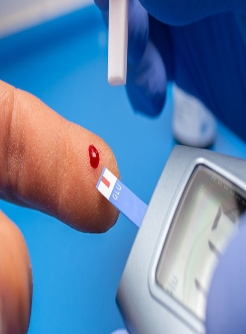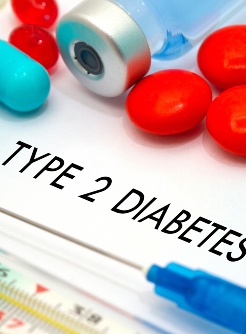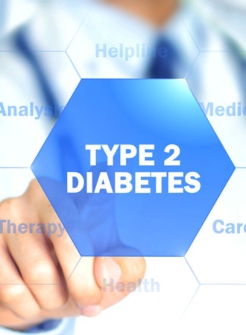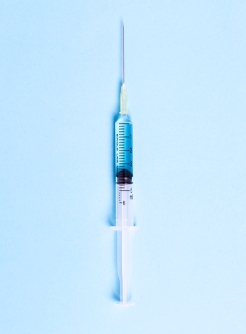Dapagliflozin Helps Preserve Kidney Function in Patients with Type 2 Diabetes
By Andrew John, MD /alert Contributor
October 6, 2022
Treatment with dapagliflozin helped lessen the severity of declining kidney function among patients with type 2 diabetes who faced a high cardiovascular risk, according to a post-hoc analysis recently published in Diabetes Care.
“More than 40% of new cases of end-stage kidney disease are reported in patients with diabetes, making it the single leading driver of incident kidney failure in most parts of the world,” Ofri Mosenzon, of the diabetes unit in the department of endocrinology and metabolism at Hadassah Medical Center and a member of the faculty of medicine at Hebrew University of Jerusalem, and colleagues wrote. “The rise in prevalence of type 2 diabetes is expected to drive an increase in the global end-stage kidney disease burden in the coming decades. Thus, interventions that prevent or delay the onset and progression of chronic kidney disease in patients with type 2 diabetes are urgently needed.”
The researchers performed a post-hoc analysis the Dapagliflozin Effect on Cardiovascular Events–Thrombolysis in Myocardial Infarction 58, or DECLARE-TIMI 58, trial, randomly assigned 17,160 patients with type 2 diabetes who faced a high cardiovascular risk to one of two groups: either 10 mg of dapagliflozin or placebo daily. Patients in the study all had type 2 diabetes and either established atherosclerotic cardiovascular disease, which included 40.6% of all patients; or multiple risk factors for atherosclerotic cardiovascular disease, including being aged 60 years or older for women and 55 years or older for men, plus at least one of the following additional risk factors—current tobacco use, hypertension, or dyslipidemia. Those with multiple risk factors made up 59.4% of patients in the study.
The study had one main composite outcome, which was a sustained decline in eGFR of at least 40% to a level lower than 60 mL/min/1.73 m2, end-stage kidney disease, or kidney-related death. Other outcomes were various measures of decline eGFR.
The majority of patients fell into the low or moderate Kidney Disease Improving Global Outcomes (KDIGO) categories (n = 15,201; 90.3%). Across all risk categories, patients assigned to dapagliflozin had lower hazard ratios for the composite kidney outcome compared with those assigned to placebo (P = .97). This held true even for patients considered to be low-risk (HR = 0.54; 95% CI, 0.38-0.77).
The risk for several different degrees of categorical reductions in eGFR were smaller in patients assigned to dapagliflozin, the researchers wrote (HR = 0.52 for a 57% or greater reduction in eGFR; HR = 0.57 for 50% or greater eGFR reduction; HR = 0.55 for 40% or greater eGFR reduction; HR = 0.7 for 30% or greater eGFR reduction; P < .05). Furthermore, Mosenzon and colleagues wrote, “slopes of eGFR decline favored dapagliflozin across KDIGO risk categories, including the low KDIGO risk (between-arm differences of 0.87 [chronic] and 0.55 [total] mL/min/1.73 m2/year; P < 0.0001).”
The researchers acknowledged that the study was limited by the fact that it was a post-hoc analysis and that the findings, as a result, “can only be viewed as hypothesis-generating.” Also, the original trial was focused on cardiovascular disease rather than kidney outcomes, and so urine-albumin-to-creatinine ratios and creatinine levels were collected infrequently. Finally, the researchers did not collect repeat measurements of kidney function markers after patients stopped using the study drug.
“In patients with type 2 diabetes at high cardiovascular risk, dapagliflozin improved kidney outcomes, including categorical changes in eGFR, eGFR slopes and rate of fast eGFR decline, highlighting its kidney protective role,” Mosenzon and colleagues concluded. “This analysis of DECLARE-TIMI 58 trial, relying on its large number of participants with low kidney risk and long follow-up, suggests that dapagliflozin meets accepted outcomes to demonstrate primary chronic kidney disease prevention in patients with type 2 diabetes at high cardiovascular risk and low kidney risk.”
--
Disclosures: Mosenzon declared financial ties to drugmakers. See full study for details. DECLARE-TIMI-58 was supported by AstraZeneca and Bristol-Myers Squibb.
Photo Credit: Getty Images.































.jpg)
.jpg)





